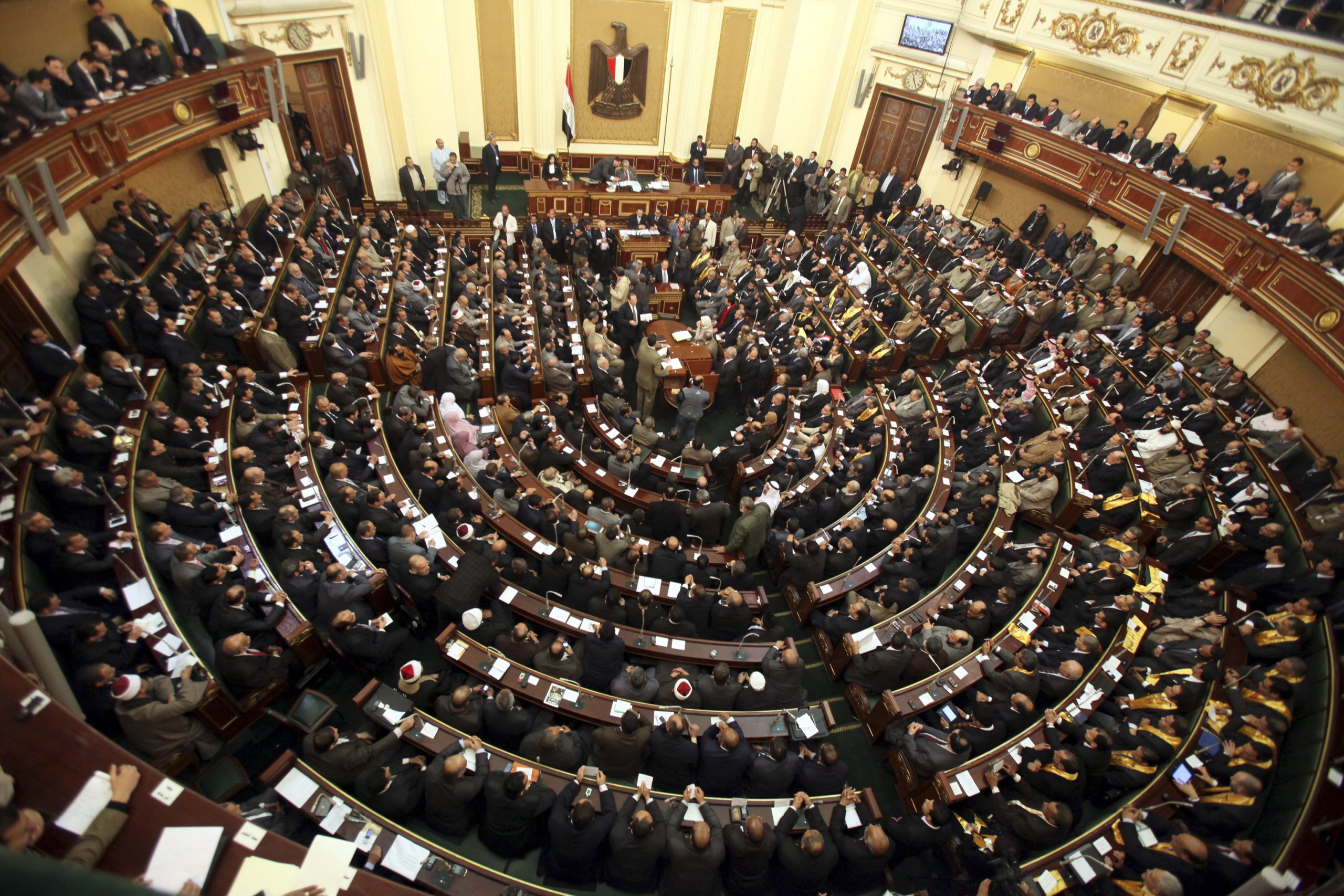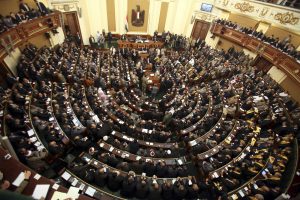Marking one year since the Egyptian Parliament’s November 2016 approval of Law 70/2017 regulating civic associations, issued by President Abd al-Fattah al-Sisi in May, the undersigned organizations reiterate their rejection of the law. For all practical purposes, the law eradicates development-focused and charitable organizations, to say nothing of rights advocacy. Dismissing any efforts to amend the law, the undersigned organizations call for its repeal. It should be replaced by the consensus bill developed under former Minister of Social Solidarity Ahmed Borai following discussions that included representatives of the General Federation of Civic Associations, advocacy groups, and charitable and development-oriented associations, as well as representatives from the Ministries of Social Solidarity, Foreign Affairs, and International Cooperation. That bill adhered closely to the Egyptian Constitution and international standards for the right of association.
On November 29, 2016, the Parliament rushed through the new civic association law without adequate debate, forwarding it to the President for ratification. Six months later, the bill was ratified and published in the Official Gazette, over the strenuous objections of Egyptian rights organizations and political parties. The Cairo Institute for Human Rights Studies (CIHRS) detailed these objections to the law, the ramifications for civic activity, and its economic impact on development and investment in a legal memorandum sent to the President on November 30, 2016. Overall, 22 organizations, four political parties, and several public figures demonstrating solidarity with civic associations urged the President not to ratify the law.
As noted by the legal memo, the law acts as a deterrent on civic and voluntary work due to the unfeasible bureaucratic hurdles it established. The law also violates constitutional principles governing the formation of civic entities, in particular the principle of notification and provisions related to the nature of association activities, rendering some of the law’s articles potentially unconstitutional. The law set vague conditions for registration. For example, an association may not engage in any activity incompatible with national security and the public order, while the competent body (which has not yet been identified) is authorized to determine whether an association’s activity comports with society’s needs and state development plans. This condition constitutes an explicit return to the old association law, Law 32/1964, known as the law that ‘nationalized’ civil society.
Since the law was adopted, it has been the object of regional and international criticism. In a televised interview, ambassador Moushira Khattab, Egypt’s nominee for the head of UNESCO, attributed her loss of that post to Egypt’s poor human rights record and the association law. The UN High Commissioner for Human Rights described the law as repressive, saying it would deeply damage the enjoyment of human rights in Egypt. The UN Special Rapporteur on the rights to freedom of peaceful assembly and of association said the law would “devastate” civil society for generations to come and erode the foundation of peaceful civic, community participation. The president of the Regional Federation of Civic Associations in Cairo said that the law would lay waste to civic work and civil society.
During his visit to the US in early November 2017, Parliamentary Speaker Ali Abd al-Aal said that the new association law might be amended, although members of Parliament, including the chair of the Social Solidarity Committee, denied this would happen before the law was actually implemented and its flaws became apparent. He added that the law’s implementing regulations had not yet been issued and these were expected to address some of the problematic issues with the law. The undersigned organizations wholeheartedly dispute all claims that the implementing regulations will remedy flaws in the law. Legally speaking, implementing regulations simply clarify how provisions of the law will be applied; they do not invent provisions or new articles. Moreover, the Mubarak regime previously made this same claim to international audiences after passing the previous association law, Law 84/2002, which remained in force, unchanged, for 15 years. During that interval, civil society organizations suffered from the draconian provisions of Law 84, only to be completely undone by Law 70/2017.
The current association law does not require a few tweaks here and there, and certainly no implementing regulations can fix it. There is no choice but to repeal the law entirely. It is based on a philosophy antithetical to civil society—one that turns it into an appendage of the state. The law views civil society as a national threat requiring a security agency with absolute authority to monitor it; it threatens non-profit staff workers with jail terms of up to five years and enormous fines. This repressive law has no peer even in those societies most hostile to civic action, such as Russia, Ethiopia, Belorussia, and Israel. The law devastates civil society, advocacy, and charitable and development-oriented activities at a time when Egypt is most in need of them, after the float of the pound, severe price hikes in goods and services, and escalating terrorism and violence.
Signatory organizations
- Cairo Institute For Human Rights Studies
- Nazra for Feminist Studies
- Egyptian Center for Economic & Social Rights
- Andalus Institute for Tolerance & Anti-violence Studies
- Misryon Against Religious Discrimination
- Centre for Egyptian Women Legal Assistance
- Adalah Center for Rights & Freedoms
- Association for Freedom of Thought and Expression
- Egyptian Commission for Rights and Freedoms
Share this Post


